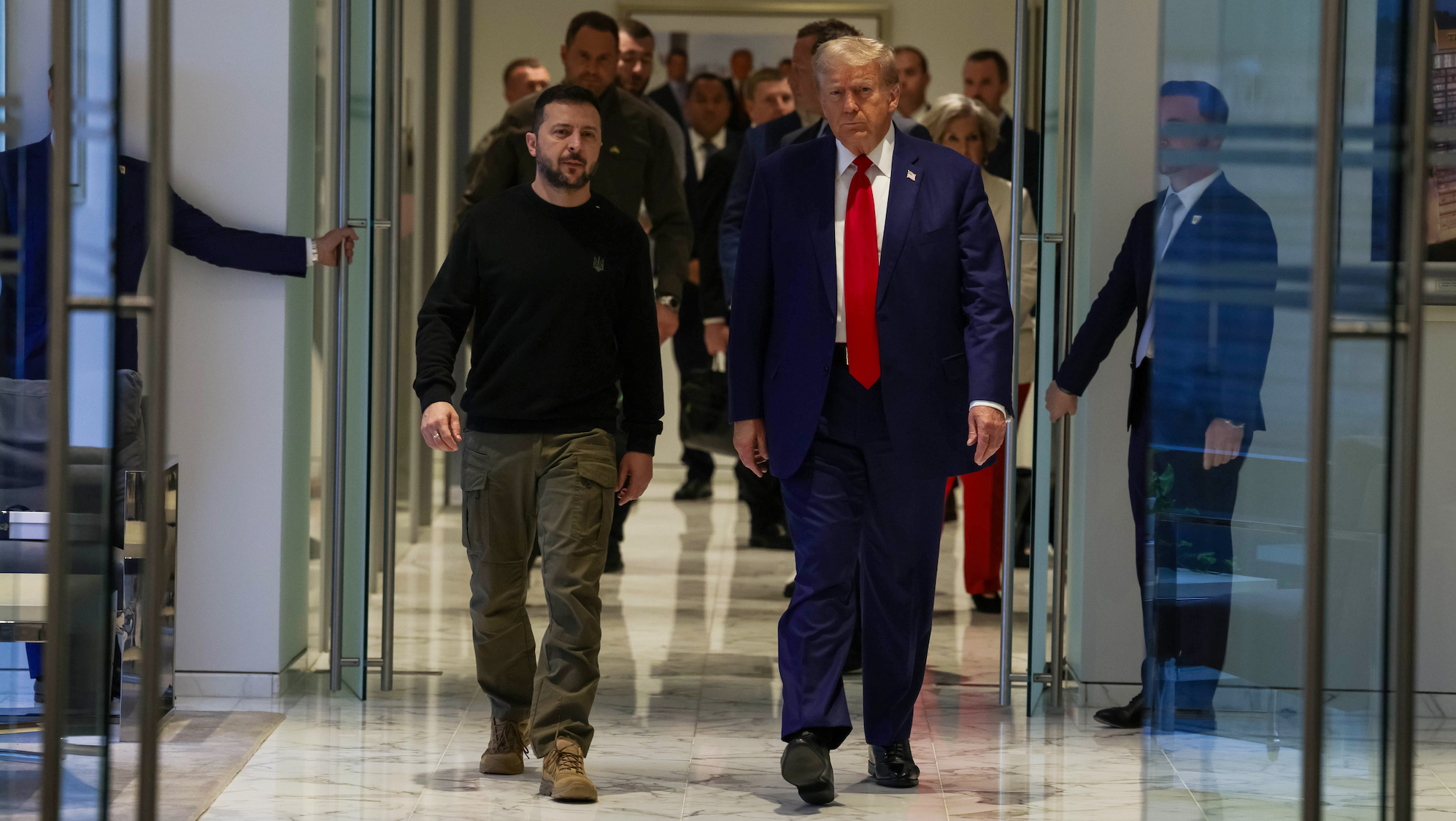Can Ukraine win over Donald Trump?
Officials in Kyiv remain optimistic they can secure continued support from the US under a Trump presidency

A free daily email with the biggest news stories of the day – and the best features from TheWeek.com
You are now subscribed
Your newsletter sign-up was successful
Donald Trump's victory in the US presidential election has been widely considered a potential disaster for Ukraine and its war efforts against Russia.
Trump's scepticism about Nato and his apparent admiration for Vladimir Putin raised questions over whether he would maintain the level of support Joe Biden has so far given Kyiv, with the incoming president obliquely suggesting he would negotiate a peace deal even before he takes office in January.
But Trump's victory does not necessarily signal an immediate end to US support for Ukraine, and Volodymyr Zelenskyy was one of the first to congratulate him on his victory, perhaps on a charm offensive to ensure the "stronger cooperation" he hopes for.
The Week
Escape your echo chamber. Get the facts behind the news, plus analysis from multiple perspectives.

Sign up for The Week's Free Newsletters
From our morning news briefing to a weekly Good News Newsletter, get the best of The Week delivered directly to your inbox.
From our morning news briefing to a weekly Good News Newsletter, get the best of The Week delivered directly to your inbox.
How much Zelenskyy can count on Trump's support to fulfil Ukraine's objective in fending off Russia remains unclear, but there is belief that the new administration could be swayed into maintaining support.
What did the commentators say?
Trump is "famously transactional" and so Zelenskyy has been trying to "frame proposals that incentivise close cooperation" rather than "cutting off critical aid", said Christopher Miller, Max Seddon and Henry Foy in the Financial Times. Those proposals include sharing "critical natural resources" with the US once the war is over, as well as replacing "some US troops stationed in Europe with Ukrainian forces".
Zelenskyy is right to respond to Trump's reelection with "mitigation and preparation" rather than "resignation or panic", said Eugene Finkel in The Spectator, and the "doomsday scenarios" perhaps "overestimate" the total impact of the US's withdrawal of support despite it being a "painful blow".
Trump is likely to be "attuned" to the consequences of a total Russian takeover of Ukraine, making "strong-arming Kyiv to cede territory" and "abandon its bid for Nato membership" the most likely scenario the next administration has in mind.
A free daily email with the biggest news stories of the day – and the best features from TheWeek.com
The president-elect has allies in Europe that also want to negotiate a "peace deal" to "end the war". These include Hungary's President Viktor Orbán and Pope Francis, the former the "closest EU leader to Mr Putin", said The Independent. However, a peace deal will almost certainly involve giving up territory to Moscow, something "opposed by all the other Western allies in Nato".
It is also a scenario Kyiv cannot countenance, but officials there are still holding "cautious optimism" that they can win Trump round, said Joshua Keating at Vox. Not only because they feel they can appeal to his "business instincts", but also because he has shown signs of support for Ukraine in the past, approving the sale of anti-tank Javelin missiles in 2019 and giving his "blessing" to "congressional allies" to support a new aid package earlier this year.
What's more, Kyiv hopes having Trump on side will allow them to "take the gloves off" and alleviate the frustration of the supportive Biden administration, which has restricted the use of some long-range weapons in Russian territory over fears of escalation.
What next?
If Trump's aim is to fast-track a ceasefire, the key "unknown element remains Mr Putin and what he would settle for", as well as whether an agreement would be enforceable in the long term, said The Economist. The Russian president has also been giving "contradictory signals" about his "willingness to negotiate", something that will make Trump's path to a peace deal much harder.
However, if he manages to end the war with agreed "terms that Ukrainians can live with", Trump will be able to "brag of achieving something Biden could not", said Max Boot in The Washington Post. It remains a gamble though, and if "Ukraine loses the war and its independence while he is in office" it will be a "stain on his presidency".
Richard Windsor is a freelance writer for The Week Digital. He began his journalism career writing about politics and sport while studying at the University of Southampton. He then worked across various football publications before specialising in cycling for almost nine years, covering major races including the Tour de France and interviewing some of the sport’s top riders. He led Cycling Weekly’s digital platforms as editor for seven of those years, helping to transform the publication into the UK’s largest cycling website. He now works as a freelance writer, editor and consultant.